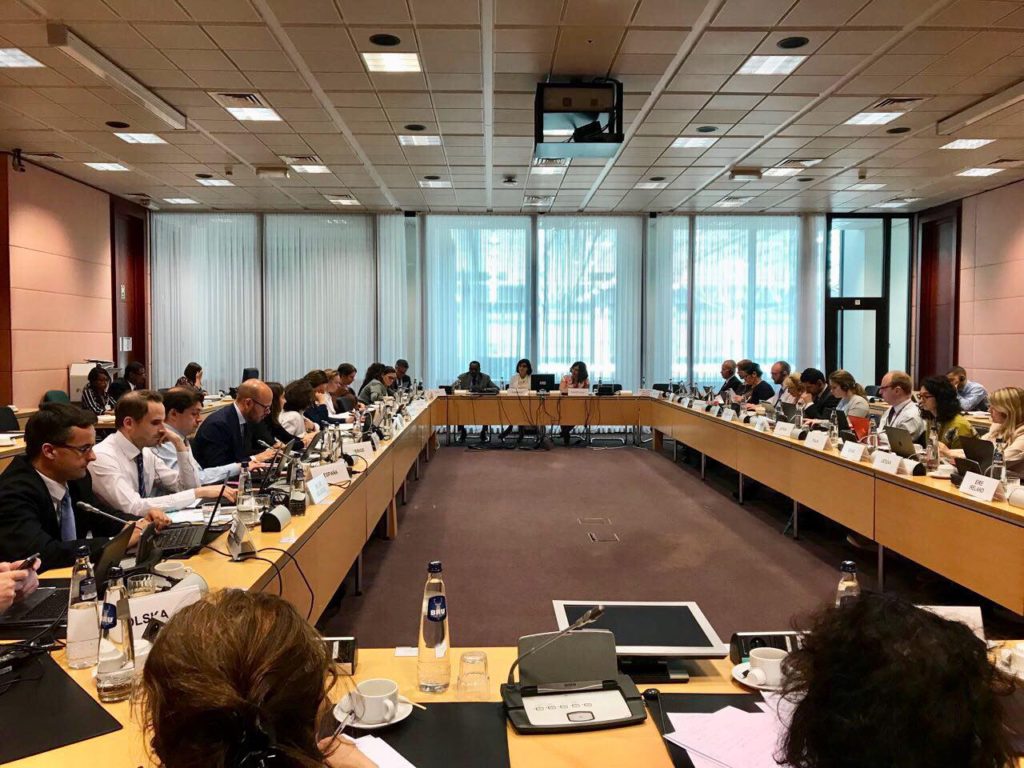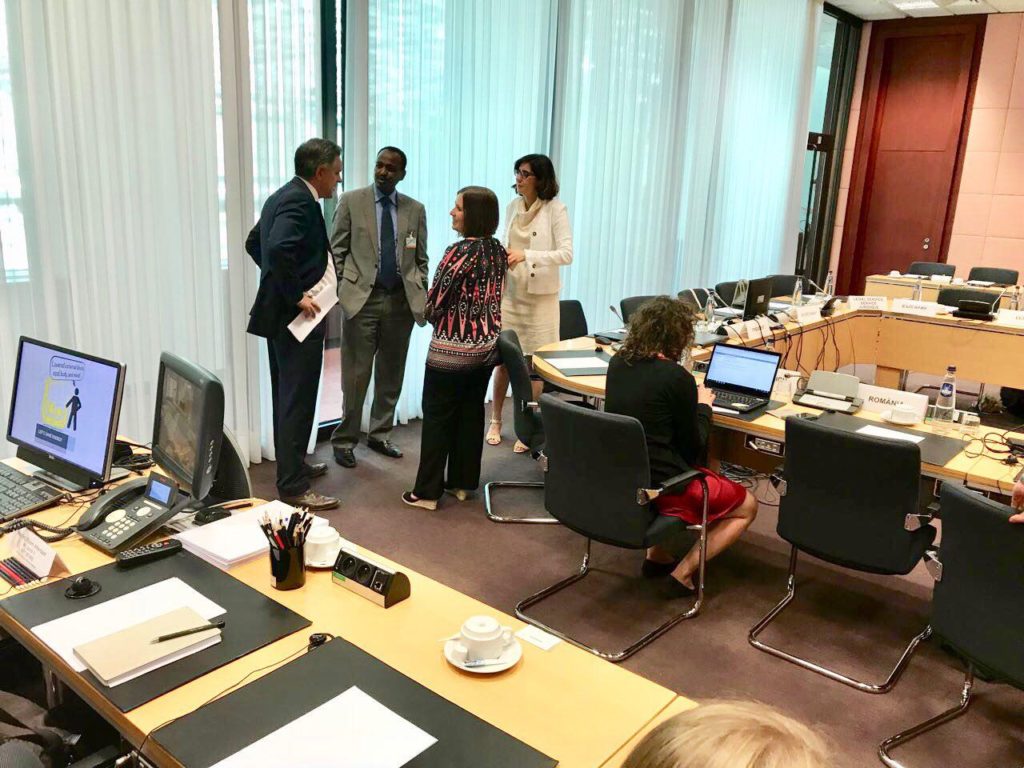
On Wednesday 4 July 2018, Ambassador Teshome Toga met with the 28 members of the Africa Working Party (COAFR) to brief them about the rapid changes taking place in Ethiopia and say goodbye to them, as he will be leaving Brussels this week.
He started his address by explaining that since Prime minister Dr Abiy Ahmed was elected Chairman of the EPRDF, significant changes have taken place at the political, economic and diplomatic levels in Ethiopia.
Politically, PM Abiy Ahmed has first and foremost been engaging with the public. To do so, he has held town hall meetings in eight of Ethiopia’s nine regions so far to listen to the people’s grievances. He also reshuffled the Cabinet, pardoned thousands of prisoners, engaged in a dialogue with opposition parties and lifted the State of emergency. All this brought back peace and stability to the country.
Another issue is that Ethiopia’s growing economy has become increasingly complex. There is, therefore, a need for increased investments from the private sector and foreign currency. Last month, the government took the bold decision to privatise some of Ethiopia’s critical State-owned enterprises such as Ethio-Telecom and Ethiopian Airlines partially. The main objective is to promote exportations and the transformation of the economy and, ultimately, with job creation as the ultimate objective.
On the diplomatic plan, PM Abiy has been touring neighbouring countries as well as Egypt, Saudi Arabia and the Emirates Arab United to reinforce existing links and promote regional integration. However, two recent events could drastically change the course of the Horn of Africa region. Salva Kiir and Riek Machar came together for the first time in two years, paving the way to a ceasefire in South Sudan. A true regional revolution is also on the road since Eritrea accepted Ethiopia’s olive branch, which resulted and the first visit of an Eritrean delegation to Ethiopia in 20 years.
All this took place over a very brief period – less than 100 days. Ambassador’s realistically noted that although Ethiopia’s problems are not yet over, the people are supportive and listening. The priority for the government should be to deliver on its commitment.
Ambassador Teshome concluded his address by saying that he hoped that the EU would continue to encourage the reforms in Ethiopia in several ways, including to create jobs on the ground, supporting Ethiopia’s peace and security efforts and collaborating on global issues such as climate change or anti-terrorism efforts.
Ms Michelle LABEEU, Deputy Head of Unit Easter Africa and Horn of Africa at DG Devco, then informed the audience about the sectoral dialogue on social and economic development, investment, trade and climate change that took place in Addis of 2 and 3 July 2018.
The EU and Ethiopia appreciated the extremely constructive discussions. Ethiopia demonstrated a firm commitment for liberalisation, opening and regional integration. Both sides have agreed to continue to have this kind of discussion yearly. Besides, progress has also been made to organise an EU-Ethiopia business forum in Brussels.
Several representatives from the EU Member States appreciated Ambassador Teshome’s efforts while he was in Brussels and welcomed the scope and depth of the current reforms. Most of the audience asked questions about the next steps Ethiopia was going to take in its internal discussions as well as in its relations with Egypt and Eritrea. France’s Representative compared the recent developments between Ethiopia and Eritrea to the fall of the Berlin wall in 1989.
Ambassador Teshome replied that while he understands Egypt’s concerns, Cairo should also respect Ethiopia’s rights on the river. Ethiopia will only use the Grand Renaissance dam to produce electricity and will not take water from Egypt. He added that while the GERD is the pillar of the relationship between Ethiopia and Egypt, there is also a need to extend it to other important areas such investment and trade.
On the regional side, he confirmed that Eritrea would probably integrate IGAD soon and that a meeting between Ethiopia and Eritrea leaders is on the works. He added that given the current positive and constructive spirit, the security should improve significantly on the Horn of Africa.
Politically, the next steps in Ethiopia will be to continue to discuss with the recently returned opposition parties and obtain consensus on several critical issues for the country, such as the current federal arrangement. However, it noted that this would not be a “top-down” approach, as the process will be open and transparent.
Finally, Ambassador Teshome concluded by hoping that the EU would work with Ethiopia on identifying real challenges on the ground. The EU is a model of democratisation and regional integration, and Ethiopia is willing to learn from its best practices.




